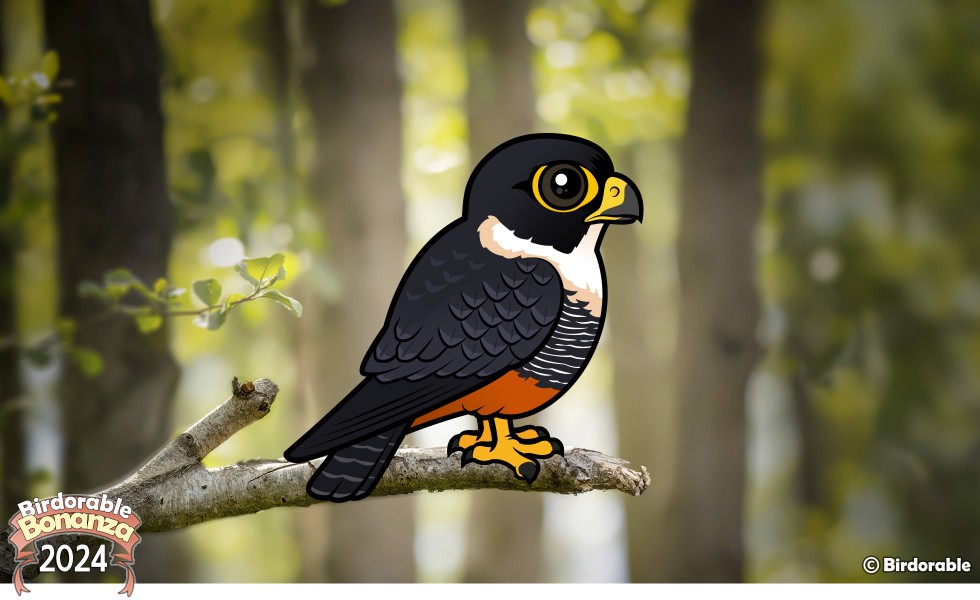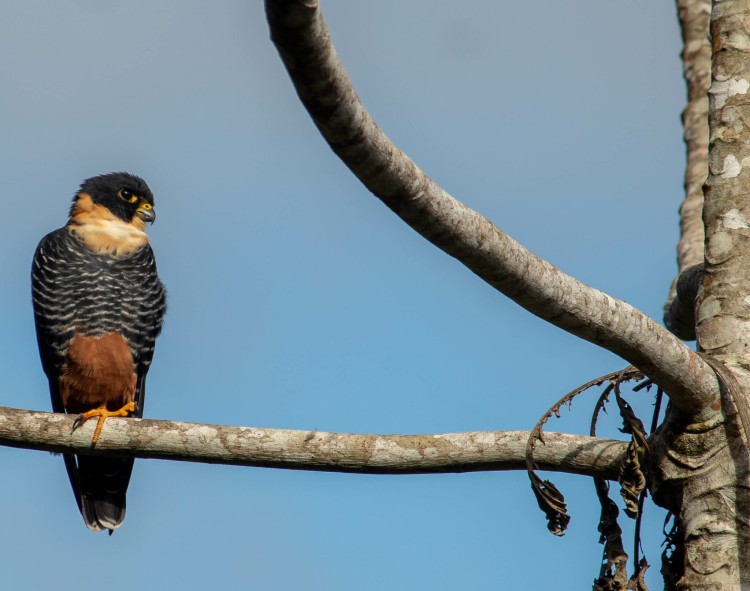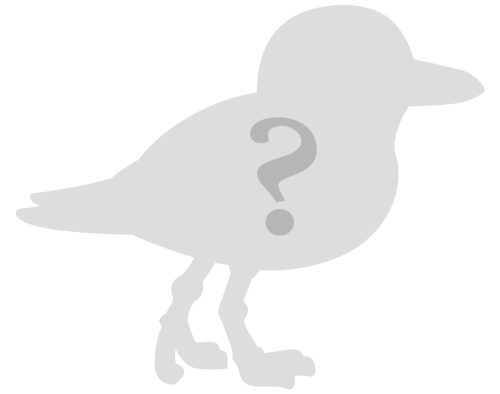2024 Birdorable Bonanza Bird #12
Bat Falcon: A Small Raptor with Big Talents

Did you see yesterday's clues and guess today's new superhero bird? Today a special species of falcon joins Birdorable: na na na na na na na na na na na na na -- Bat Falcon!
The Bat Falcon is a small but powerful bird of prey native to the Americas. Found in forests, savannas, and open areas from Mexico down through the middle of South America, this striking falcon is a skilled predator known for its agility and speed. Despite its name, bats are just one of the many aerial prey items it hunts.
The Bat Falcon is visually striking, with a dark slate-gray back, a white throat and chest, and bold, rufous-colored lower belly and thighs. Its sharp, hooked beak and bright yellow legs add to its fierce appearance. Males and females have similar plumage, though females tend to be slightly larger (as is the case for most birds of prey).
As a fast and agile hunter, the Bat Falcon primarily preys on small birds, insects, and, yes, bats. It hunts by perching on high vantage points like treetops or cliffs, waiting for prey to appear. Once it spots a target, it launches into an acrobatic dive, using its speed and precision to snatch the unsuspecting victim mid-flight. Its ability to capture fast-moving prey like swifts and bats showcases its incredible hunting skills.

Bat Falcon by Arthur Bruck [CC0]
Bat Falcons are usually solitary or found in pairs. Often quiet on their own, Bat Falcons are known for their sharp, high-pitched calls while paired up, which help them communicate with each other, or signal territorial boundaries. They often nest in tree cavities, abandoned woodpecker holes, or even on cliffs. The female typically lays two to four eggs, which she incubates while the male provides food. Once the chicks hatch, both parents share the responsibility of feeding them.
The Bat Falcon’s speed, agility, and bold coloration make it a fascinating bird of prey that highlights the diversity and adaptability of raptors in the Americas.
Bat Falcon! Gifts From Birdorable
Tomorrow’s Birdorable Bonanza takes us to the shores with a tiny, feathered traveler! This adorable wader breeds in Siberia and loves sandy beaches. Can you guess what it is? Drop your guesses below! 🤔














Comments
Leave a comment
Thank you!